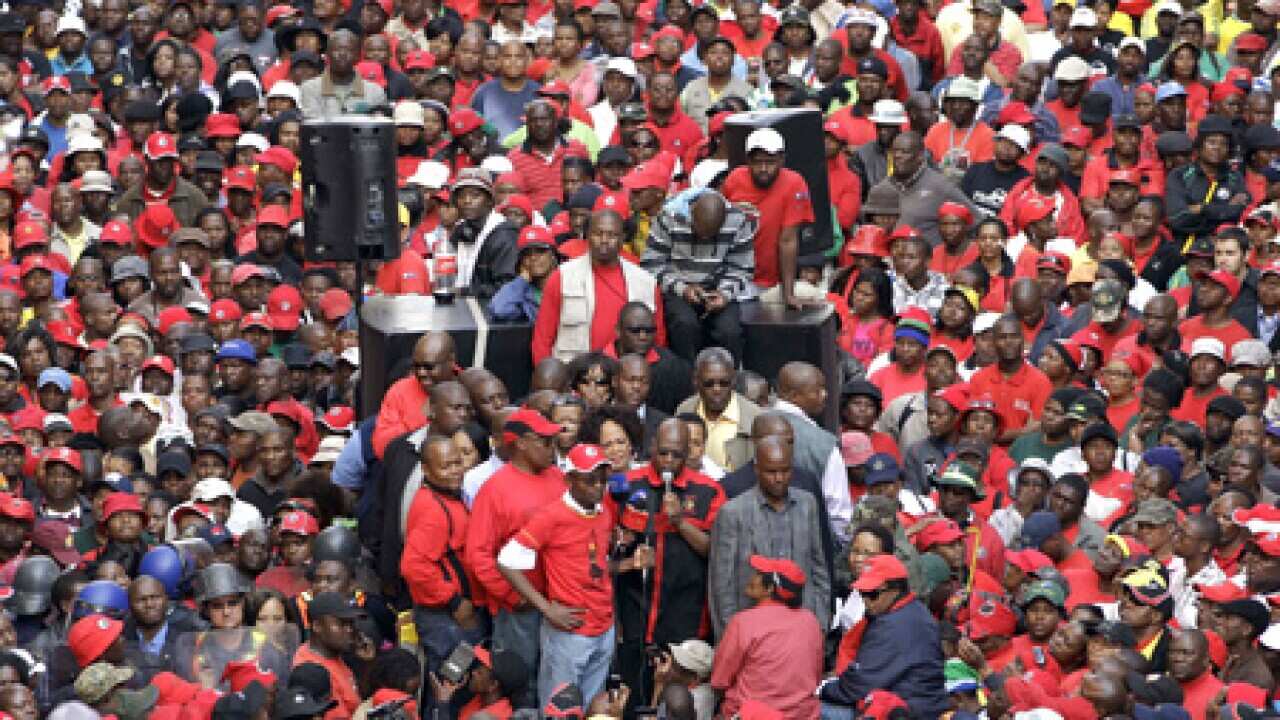The show of strength organised by unions came as a nationwide strike that has hurt hospitals and schools entered its second week.
No resolution was in sight, and there were signs more workers would soon be on strike.
The police union has said its members will start striking on Saturday, raising concerns in a country with one of the world's highest rates of violent crime in the world and reporting about 50 murders a day.
Police also have used water cannon and rubber bullets to control sporadic violence during the strike.
The police department's management obtained a court order early Thursday barring officers from going out on strike and said any police who joined the protests could be fired.
A spokesman for the Police and Prisons Civil Rights Union (POPCRU), Norman Mampane, says union lawyers will challenge the court order.
The powerful Congress of South African Trade Unions(COSATU) said member unions which were not already on strike were making plans to stop work in a week in solidarity with the public servants.
COSATU's general secretary,Zwelinzima Vavi, said the federation had not wanted a strike and had recommended that public servants accept the government's offer of a seven per cent wage increase plus 700 rand ($A108.59) for housing. The workers, though, are holding out for an 8.6 per cent rise and a 1000 rand ($A154.96) housing allowance.
"We have to be loyal to our numbers," Mr Vavi told reporters Thursday.
"If they say this deal is not good enough, we have to march with them."
An official with the Public Service Association union, Monica Venter, said as she joined thousands of marchers in downtown Johannesburg: "We will go on until we get a better offer from the employer, an improved offer from the employer on the table."
Marchers also were moving peacefully through the streets of Cape Town and other cities.
Many South Africans have been aghast that the sick and frail are suffering because of the strike.
Answering a government call for volunteers, army medics and ordinary South Africans have served meals to patients, changed babies' nappies and helped retired nurses at public hospitals dispense medicine.
Private hospitals, which are not affected by the strike, are also taking some of the sickest patients.
It remains unclear how long the strike will last. A public service strike in 2007 lasted a month.
South Africa has been hit hard by the global recession, losing 900,000 jobs last year on top of already high unemployment.
The government has said it wants to devote funds to creating new jobs, not just raising the salaries of those already working.
Share

